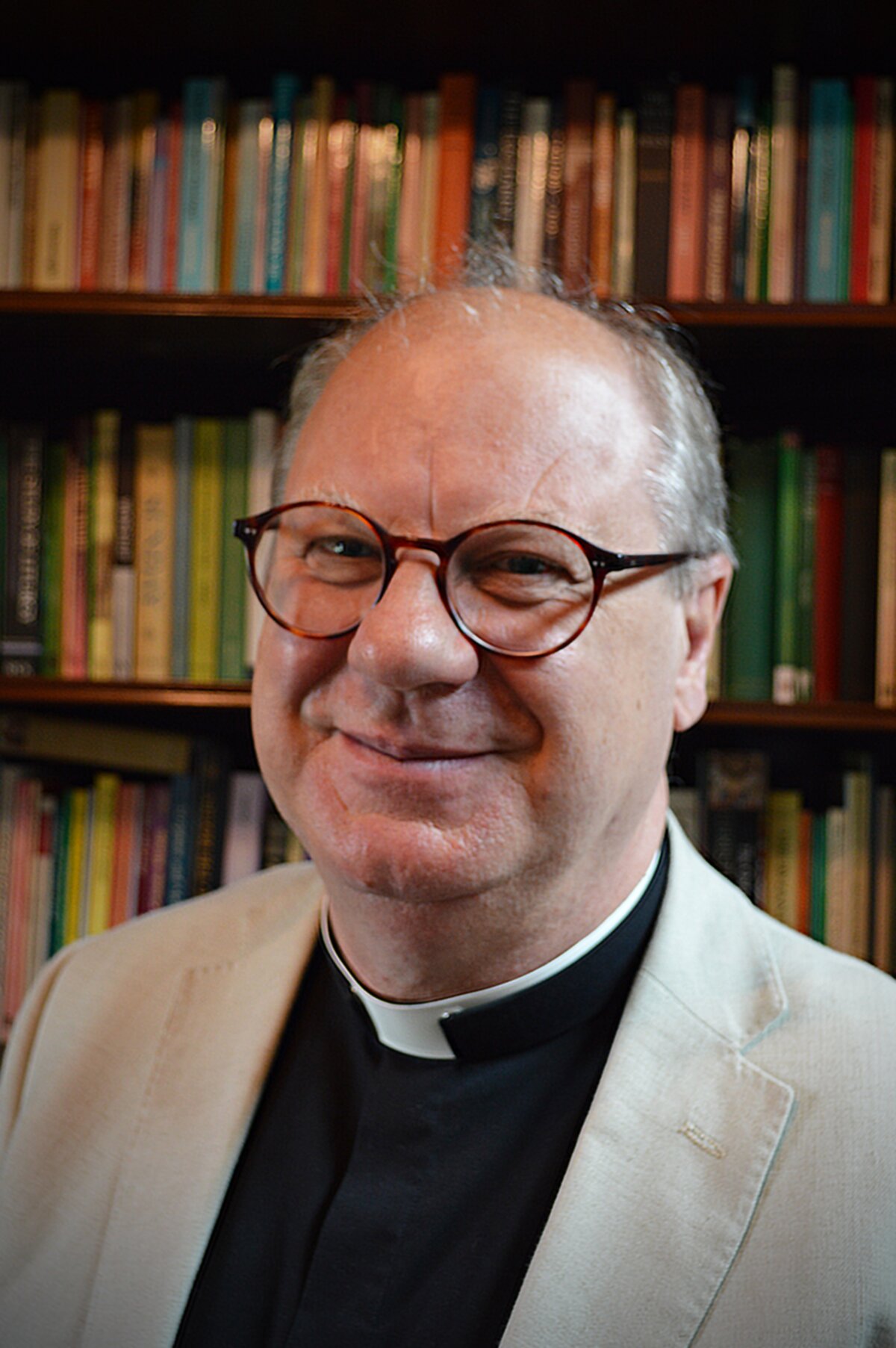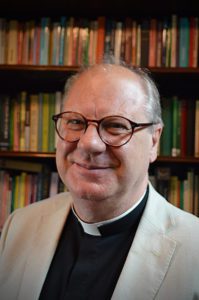
The Revd Canon Christopher Irvine is former Principal at The College of The Resurrection, Mirfield, and former Canon Librarian at Canterbury Cathedral. He is now an Honorary Teaching Fellow at St Augustine’s College of Theology. We asked him to talk a little about his role and the importance of theological education.

I’ve spent most of my working life connected with theological education in some way. I wouldn’t say I was an eternal student, but I do have a serious vocational calling to the study of theology, and a strong belief that if you want to get to grips with a subject, the best way is to teach it.
Although I’m now technically retired, I look after the churches for two villages in East Sussex.
My connection with St Augustine goes back quite a few years, to when the previous Principal of what was then SEITE, Dr Jeremy Worthen, asked me to teach Liturgy during his sabbatical. I taught on and off; then when I left Canterbury Cathedral began to teach more, until the current Principal, Alan Gregory invited me to become an honorary teaching fellow. I now teach an MA module on Art and Theology with Alan, as well as sacramental theology, looking at the worship traditions of the Church, particularly baptism and communion, and what it means to be the body of Christ in and for the world.
My background
Before becoming Canon Librarian, I was Principal at The College of the Resurrection, Mirfield. It has a fascinating history, having been founded at the beginning of the 20th century partly on the principle that the opportunity to train for the priesthood in the Church of England should be open to all – not just those with the means to be able to go to an Oxbridge college. Founded by the Community of the Resurrection, the College had a strong emphasis on living as a community and shares some of the worship of the Community.
St Augustine’s and its role in theological education
Like Mirfield, St Augustine’s has a strong ethos of access. We have a vision of the Church where all are called by God and in which we each have the responsibility to live out a Christian life. So it’s important that all can study and worship together to discern what the Church is and what she is called to be.
One of the successes of St Augustine’s is that it attracts people from a range of backgrounds and interests and therefore represents a microcosm of the society we need to engage with.
We live, broadly, in a society where the vast majority of people have no particular religious affiliation. It’s not that they have rejected Christianity, necessarily, but that they have never reflected on it or seen its relevance to them. And that is why we need to educate and form a Church which can talk about God in both a convincing but also a coherent way that connects with people’s deepest fears and aspirations. Theology just means ‘God talk’, and we need to be so immersed in prayer, the primal language of Christianity, that we might come to speak authentically about God.
The wonderful thing about St Augustine’s is that it gives us the best of two worlds. We share the grit of the city in our Southwark base, but also gain a sense of the importance of the holy place, of places of prayer as at West Malling. In having those two bases, we really straddle two important things: how to live in socially diverse world and the need to practice Benedictine hospitality and value its sane balance of work, study, and prayer.
Maintaining a sense of community through the Church
One of the challenges of current political trends is that different communities are being pitched against each other. This isn’t necessarily to apportion blame, but we tend to talk about ‘this community’ or ‘that community’. What we really need is the vision of all people belonging together in Kingdom of God.
During lockdown, of course, bringing people together physically has been impossible, and we’ve re-learned so much about the importance of connecting with people. Technology has helped, of course, and we’ve all had to learn to use things like Zoom (not always ideal for my teaching style, as I tend to enthuse, and I’m not sure my arm-waving has the same effect on screen!)
It’s been a really interesting exercise, though, and has raised questions, not only for me, but for the students themselves, about what the business of worship is about.
Worshipping together and people being physically together is so significant, and during lockdown my students have been amazing at raising interesting questions about the nature of worship. Of course, technology has given us an extraordinary reach, and as a means of maintaining contact, it’s been a blessing for those who are self-isolating, or housebound.
Technology can help, but I’ve been struck by a renewed appreciation of the importance of places – particularly those where we meet. Since we’ve been able to restart some public services, I’ve been amazed, in the two churches I look after, by the number of people who have come to church.
Theology is so important because it helps us to recognise this God who comes to us as we meet and gather for worship in whatever way we can. It’s not a dry academic discussion but hones our understanding of God as we gather in His presence. But let’s also remember that it is less a question of us knowing God than of recognising that God knows us.

